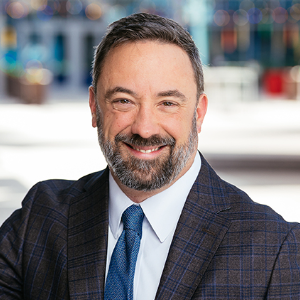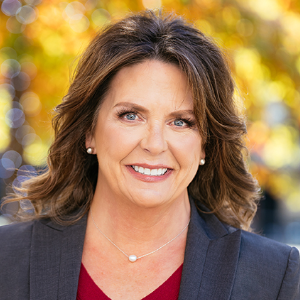Best Lawyers in South Carolina, United States for Real Estate Law
Practice Area Overview
Buying, selling, or managing real estate in South Carolina isn’t just a financial transaction—it’s a legal process. And unlike in many other states, South Carolina law requires a licensed attorney to oversee real estate closings. That means legal support isn’t optional—it’s essential.
Whether you're navigating a residential purchase, handling a commercial lease, or facing a property dispute, having the right legal guidance protects your investment and your peace of mind. Many clients search online using terms such as realtor attorneys near me or realty attorney near me to find trusted local legal experts.
This page is your starting point for finding a South Carolina real estate attorney who’s been vetted and recognized by their peers. Explore legal services, understand when to hire an attorney and connect with trusted professionals who know South Carolina law—and how to make it work for you.
When to Hire a Real Estate Attorney in South Carolina
Real estate law can be complex, especially when your property—and your money—are on the line. Whether you're buying your first home or managing a commercial portfolio, knowing when to call in a lawyer can save you time, stress and costly mistakes.
A real estate lawyer in South Carolina can help with:
- Drafting or reviewing residential or commercial purchase agreements
- Clearing title defects or handling quiet title actions
- Negotiating commercial or multi-unit leases
- Addressing zoning, permitting, or land use conflicts
- Settling disputes with buyers, sellers, developers, or HOAs
- Representing you in litigation, foreclosure, or bankruptcy involving real property
If you’re unsure whether your situation calls for legal support, it probably does. Use this directory to find a real estate lawyer in South Carolina who can guide you through your next step with confidence.
Residential vs. Commercial Real Estate: What’s the Difference?
Not all real estate deals are created equal. Residential and commercial transactions involve different levels of complexity, risk and regulation. The right legal support depends on the type of property and what’s at stake.
A residential deal usually involves fewer parties, simpler financing and standard contracts. But even these transactions can unravel without proper legal review. A South Carolina real estate attorney can help spot red flags before you sign, especially when you're dealing with title issues, property disclosures, or HOA rules.
Commercial real estate? often comes with higher stakes and more moving parts. From multi-unit developments to retail leases, commercial transactions often require in-depth negotiation, zoning compliance and careful structuring.
Many real estate lawyers in South Carolina focus on one or the other. Whether you’re buying a home in Charleston or leasing office space in Greenville, the right attorney will understand the local market and your legal risks.
What South Carolina Real Estate Attorneys Can Help You With
The best real estate lawyers in South Carolina don’t just show up at closing—they help protect your investment at every stage. Here’s what that can look like.
Sales and Acquisitions
Every deal starts with a contract, but not every contract protects your interests. A real estate attorney can help with deal structuring, due diligence, negotiations and compliance with South Carolina’s closing laws. Whether you’re buying a home, selling land, or managing a property transfer, legal oversight is critical.
Title Matters
Title defects can delay or derail a transaction. Attorneys can identify and resolve title issues, clear liens and pursue quiet title actions when ownership is in dispute. In South Carolina, where attorney involvement in closings is required, title review is a key part of the process.
Land Use and Environmental
From zoning and permitting to environmental impact assessments, South Carolina property laws can be highly local and deeply technical. Attorneys help you navigate restrictions, secure necessary approvals and avoid costly regulatory violations—especially for coastal or rural properties.
Development
Real estate development comes with layers of complexity, from site selection to municipal approval. Legal support helps you move forward with confidence, ensuring your plans comply with local ordinances, community covenants and environmental rules. Development projects in fast-growing areas like Charleston or Greenville often require deep local knowledge.
Leasing
Commercial leases can be long, detailed and one-sided if you’re not careful. Whether you’re a landlord or a tenant, an attorney can review terms, negotiate favorable clauses and resolve disputes. Leasing for multi-unit or mixed-use properties also requires careful attention to South Carolina-specific rules.
Finance
Financing arrangements are the engine of many deals—but poorly drafted loan documents can leave you exposed. Real estate attorneys assist with mortgage documentation, construction loans, refinancing and lender negotiations to ensure financing aligns with your goals.
Joint Ventures
When two or more parties invest in property together, clear agreements are essential. Attorneys can draft joint venture documents, manage risk allocation and build in exit strategies to prevent future conflict. Many real estate lawyers in South Carolina assist with partnership and LLC formation for real estate deals.
Restructuring and Workouts
Markets shift and not every investment goes as planned. When you're facing foreclosure, bankruptcy, or the need to restructure debt, attorneys can help renegotiate terms, protect your assets and guide you through court processes when necessary.
Litigation
Disputes happen—even with the best contracts. Real estate attorneys represent clients in breach of contract cases, boundary line disputes, title claims and landlord-tenant litigation. When property issues land in court, you need someone who knows both the law and the local legal landscape.
What Makes South Carolina Real Estate Law Unique
Every state handles real estate differently—and South Carolina stands out in a few important ways. Most notably, South Carolina law requires a licensed attorney to conduct residential and commercial real estate closings. That means legal support is mandatory.
Local legal issues can vary widely depending on where you’re buying or developing. In coastal regions like Charleston or Hilton Head, floodplain regulations, beachfront zoning and hurricane-related insurance requirements are common hurdles. Upstate, developers often deal with land-use conflicts or county-level permitting challenges in fast-growing areas like Greenville and Spartanburg.
Many properties are also governed by homeowners’ associations (HOAs) and disputes over covenants, dues and architectural guidelines are more common than you’d think. A South Carolina real estate attorney understands how to handle these regional nuances—before they turn into legal problems. Whether you're dealing with residential or commercial property, local knowledge isn’t just helpful—it’s essential.
Find a Trusted Real Estate Attorney in South Carolina
No matter where you are in the real estate process, having the right legal support can make all the difference. South Carolina’s real estate laws are unique—and so are the attorneys who practice here. If you’ve been searching for 'realtor attorneys near me' to help with a residential or commercial transaction in South Carolina, this directory offers a trusted place to begin.
At Best Lawyers, we make it easy to connect with peer-reviewed real estate attorneys who are recognized for their integrity, skill and experience. Whether you're closing on a home, launching a development, or resolving a dispute, you can search by location, practice focus, or attorney name to find the right fit.
Select a city from the list below to find the best legal talent for your needs.
Cities
Lawyers who have a subscription to profiles appear first.
Would you like to claim your lawyer profile?
Contact UsOur Methodology
Recognition by Best Lawyers is based entirely on peer review. Our methodology is designed to capture, as accurately as possible, the consensus opinion of leading lawyers about the professional abilities of their colleagues within the same geographical area and legal practice area.
The Process
Best Lawyers employs a sophisticated, conscientious, rational, and transparent survey process designed to elicit meaningful and substantive evaluations of the quality of legal services. Our belief has always been that the quality of a peer review survey is directly related to the quality of the voters.













